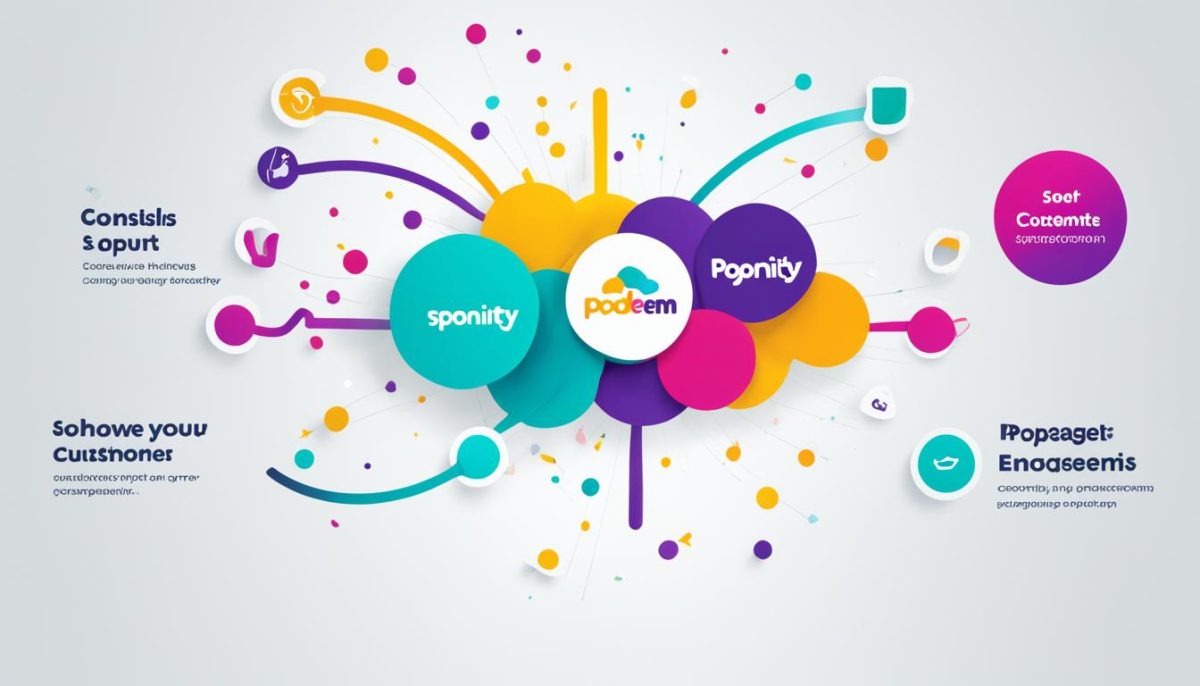Welcome to our guide on choosing the best influencer strategy for your business. In today’s digital age, social media influencers play a crucial role in brand promotion and customer engagement. By partnering with the right influencers, you can harness the power of their online presence to reach your target audience effectively. In this section, we will explore the importance of selecting the right influencer strategy for your business and provide you with valuable insights on how to navigate the world of influencer marketing.
As a business, it’s essential to leverage the potential of social media influencers to create a strategy that aligns with your brand’s goals and objectives. By doing so, you can elevate your online presence, expand your reach, and drive meaningful connections with your target audience. We will guide you through the process of identifying the influencers who can best represent your brand values and resonate with your customers.
Through this section, we will walk you through the steps of understanding your target audience, finding the right influencers, and crafting an effective influencer strategy. We will provide you with practical tips and expert advice to ensure that your influencer marketing efforts yield maximum results.
So, whether you are just starting or looking to enhance your existing influencer marketing strategy, we are here to help you make informed decisions that will propel your business forward. Let’s dive in and discover how to choose the best influencer strategy for your business!
Understanding Your Target Audience
Before diving into influencer marketing, it’s crucial to understand your target audience. By gaining insights into their demographics, interests, and preferences, you can create an effective influencer marketing strategy that resonates with them. Identifying your target audience will lay the foundation for successful collaborations with influencers who have the right audience for your brand.
To comprehend your target audience better, start by conducting thorough market research. Analyze data and metrics from various sources to gain a comprehensive understanding of who your audience is and what they want. Utilize social media analytics tools, customer surveys, and market research reports to collect valuable data.
Once you have gathered this information, segment your audience into specific groups based on common characteristics. This segmentation will help you identify the different needs, preferences, and aspirations of your audience. By understanding their pain points and desires, you can tailor your influencer marketing strategy to address their specific needs.
When selecting influencers to collaborate with, it’s essential to ensure that their audience aligns with your target market. Look for influencers who have a substantial following within your target audience demographics. Analyze their engagement rates, audience demographics, and the type of content they share to determine if they are a suitable fit for your brand.
Remember, effective influencer marketing is all about building genuine connections between your brand and your target audience. By understanding your audience’s interests and preferences, you can create authentic collaborations with influencers that resonate with your target market.
Stay tuned for the next section, where we will discuss how to find the right influencers for your brand.
Finding the Right Influencers
Now that you know your target audience, it’s time to find the right influencers for your brand. The right influencers have the power to connect with your audience on a deeper level and drive meaningful engagement. To ensure successful influencer collaborations, here are some methods you can use to discover relevant influencers in your industry:
- Utilize social media platforms: Platforms like Instagram, YouTube, and TikTok are treasure troves of influencers. Use relevant hashtags, explore trending content, and engage with potential influencers to assess their fit for your brand.
- Tap into influencer marketing platforms: There are numerous influencer marketing platforms available that can simplify the search process. These platforms allow you to filter influencers based on niche, reach, engagement, and more.
- Monitor industry events and conferences: Industry events and conferences attract influential figures in your niche. Take note of the speakers, panelists, and attendees who align with your brand values and explore collaboration opportunities.
- Seek referrals from industry professionals: Reach out to industry professionals, thought leaders, and other businesses in your niche. They may have valuable insights and recommendations for influencers who have already proven their efficacy.
Once you have identified potential influencers, it’s crucial to evaluate their reach, engagement, and authenticity. Look for influencers who have a substantial following, consistent engagement on their posts, and a genuine connection with their audience. Analyze their content to ensure it aligns with your brand values and resonates with your target audience.

Selection Tips and Tricks
When selecting influencers for your brand, keep the following tips in mind:
- Relevance: Choose influencers whose content aligns with your brand image and messaging. Their audience should have a genuine interest in your industry or product.
- Engagement: Look for influencers with a high engagement rate, indicating an active and dedicated audience. Comments, likes, and shares are valuable indicators of engagement.
- Authenticity: Authenticity is key. Ensure that the influencers you choose genuinely connect with their audience and have a consistent and authentic personal brand.
- Collaboration potential: Consider influencers who are open to collaboration and have previously worked with brands. Their experience and professionalism can contribute to the success of your influencer campaigns.
- Long-term partnerships: Building long-term relationships with influencers can be beneficial for your brand. Look for influencers who are open to long-term partnerships and can grow with your business.
By implementing these strategies and guidelines, you’ll be on your way to finding the right influencers who can effectively promote your brand and resonate with your target audience.
Crafting an Effective Influencer Strategy
Once you have identified the right influencers for your brand, it’s time to craft an effective influencer strategy that will help you achieve your marketing goals. Setting clear goals is crucial in this process. Identify what you want to achieve through influencer marketing, whether it’s increasing brand awareness, driving website traffic, or boosting sales.
Defining key performance indicators (KPIs) is another important step. These metrics will enable you to measure the success of your influencer campaigns, whether it’s through tracking website clicks, engagement on social media, or conversions. By establishing KPIs, you can determine the effectiveness of your influencer strategy and make data-driven decisions to optimize your future campaigns.
An influencer strategy is also tied to your budget. Determine the budget you are willing to allocate for influencer collaborations, taking into account factors such as campaign duration, influencer rates, and content production costs. Creating a realistic budget will allow you to maximize the impact of your influencer marketing efforts and invest wisely in partnerships that align with your brand’s values and objectives.
In crafting your influencer strategy, consider different types of collaborations. Sponsored content, where influencers create authentic and engaging posts featuring your brand, can be a powerful way to showcase your products or services. Similarly, brand partnerships, where influencers become long-term ambassadors of your brand, can establish credibility and foster brand loyalty. Affiliate marketing, where influencers earn a commission for driving sales, can incentivize them to promote your brand and generate conversions.
Remember, negotiation is key when working with influencers. You want to ensure fair deals that benefit both parties. Discuss expectations, deliverables, and compensation early on in the collaboration process. Building strong relationships with influencers based on trust and transparency will result in more successful campaigns and long-term partnerships.



